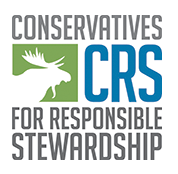
by djenkins | Apr 23, 2019 | Renewable Energy
With an unprecedented level of bi-partisan support, both houses of the Nevada legislature have passed a bill to establish a state renewable energy standard of 50 percent by 2030. The vote was unanimous, with “yea” votes recorded by every Republican and Democrat in the Nevada Senate and General Assembly. The legislation (S.B. 358), which also sets a goal of 100 percent renewable energy by 2050, was signed into law by Governor Sisolak on April 22. Given Nevada’s tremendous solar and geothermal energy potential, the low costs of these energy sources, and the state’s urgent need to diversify away from expensive natural gas generation, passing this legislation was the smart and conservative choice. Currently, Nevada depends on out-of-state natural gas for more than two thirds of its electricity generation. This makes no sense for a state that has unrivaled solar and geothermal resources–even more so, now that electricity generated by these renewables is cheaper than electricity generated using natural gas. Even new solar plants with storage are beating the price of gas-generated power. Also, since the price of natural gas is projected to double between now and 2030, Nevada residents were facing significant electricity rate increases. Solar energy, by contrast, is forecast to continue getting cheaper. CRS has been sounding the alarm about Nevada’s risky over-reliance on natural gas and the lack of diversity in its electricity portfolio for several years. It is gratifying to see the state take this prudent action to address that problem. There are still some on the political right, mostly those with close ties to special interests, who still peddle tired old canards that renewable...

by djenkins | Apr 10, 2019 | Oil and Gas
Much needed legislation to reform the oversight of oil and gas operations in New Mexico was recently passed with strong bi-partisan support in the state legislature and signed into law by the governor. The support of Republican senators Sander Rue and Candace Gould, along with eight of their fellow Republicans, was critical in making sure that this legislation (HB 546) made it across the finish line. The new law restores the state Oil Conservation Division’s (OCD), authority to enforce the state’s environmentally protective oil and gas regulations, while also making improvements that encourage the conservation and reuse of water used in oil and gas production. OCD, which is a division of the New Mexico Energy, Minerals and Natural Resources Department, lost its ability to meaningfully enforce oil and gas related violations due to a 2009 New Mexico Supreme Court. According to a recent report, oil and gas-related spills and other violations increased nearly 100 percent in the decade since the ruling, while fines assessed by the agency dropped to zero last year. Hopefully, this bi-partisan commitment to ensure that the “Land of Enchantment” continues to enchant by safeguarding its amazing natural beauty and water resources will continue. In addition to Rue and Gould, the Republican senators who supported this common sense legislation included Senators Brandt, Griggs, Ingle, Moores, Payne, Pirtle, and Woods. CRS is running thank you ads (see below) to underscore that effectively enforcing pollution laws and holding violators accountable is conservative. Thank you Senator Gould for supporting HB 546.Together we can grow our state’s oil industry responsibly. Thank you Senator Rue for supporting HB 546.Together we can grow...

by djenkins | Mar 12, 2019 | Pollution
Conservatives for Responsible Stewardship’s president, David Jenkins, issued the following statement in response to Royal Dutch Shell’s recently announced opposition to the Trump administration’s proposed rollback of methane rules: “We applaud Shell’s very commendable stance against the Trump administration’s proposed rollback of common-sense methane pollution standards. This is what being a good corporate citizen and good steward of our planet looks like,” said CRS president David Jenkins. “The administration would do well to take its cues from responsible companies like Shell, and abandon reckless policy proposals that cater only to bad actors.” “Shell deserves enormous kudos for its approach to methane pollution, and not only for opposing the administrations proposed rollbacks, but also for setting its own company standards to be protective of our atmosphere,” Jenkins added CRS has worked hard in opposing Trump administration plans to scrap existing rules that require oil and gas companies to minimize the release of methane, which is a powerful greenhouse gas, through leaks and excessive flaring. Such releases not only pollute the air and waste natural gas, it also costs taxpayers millions of dollars in lost royalty...
by djenkins | Feb 1, 2019 | Uncategorized
Last year Congress allowed the Land and Water Conservation Fund (LWCF), one of America’s most important conservation and recreation funding tools, to expire. Public lands legislation (S. 47) that just passed in the U.S. Senate includes a long overdue provision to permanently reauthorize this critical program. It is urgent that CRS members—and anyone who cares about America’s great outdoors—contact their representatives immediately and ask them to also pass S. 47 to restore LWCF. This longstanding program is based on a very conservative idea: use a small portion of revenues from the use of one type of natural resource, offshore oil and gas, to support the conservation of others, our parks, forests, rivers, and other conservation lands. Please click this link, RESTORE LWCF, and use the quick and easy interface to ask your Senators to permanently reauthorize LWCF. If you wish, you can edit and personalize the prewritten letter before sending. About LWCF LWCF, the brainchild of a commission established by President Dwight D. Eisenhower, was created more than 50 years ago to ensure that we balance the use of our natural resources with investment in conservation and stewardship. It is a critical tool in the protection of land for hunting, fishing, hiking, camping and virtually any other outdoor activity. In addition, LWCF safeguards our water supplies, protects critical wildlife habitat, reduces wildfire losses and helps prevent flooding. Investments in this program pay huge dividends, improving our quality of life, our health, and our economic well-being. LWCF accomplishes all of this without a dime of taxpayer money! What is more conservative than that? It makes sense that for more than 50 years,...
by djenkins | Dec 21, 2018 | Uncategorized
Comprehensive and bi-partisan legislation to address climate change, the Energy Innovation and Carbon Dividend Act of 2018, has recently been introduced in both the House and the Senate. This progress is long overdue. Ronald Reagan, Margaret Thatcher and George H.W. Bush were all calling for action to address climate change 30 years ago. Since then we have seen this important issue fall victim to special interests influence and partisan politics. This legislation will reduce greenhouse gas pollution by placing a modest fee on carbon intensive fossil fuels to spur innovation and encourage the use of cleaner energy sources. The money collected from the carbon fee will then be allocated in equal shares every month to the American people to spend as they see fit. The government would not keep any of the money from the fee. If passed, this revenue neutral and market friendly policy will reduce America’s emissions by at least 40% within 12 years. It will also give America’s energy sector the regulatory predictability it needs to plan its future investments. This approach has strong support from economists and scientists as a simple, comprehensive, and effective climate solution. Current co-sponsors of the House bill, H.R. 7173, include Representatives Brian Fitzpatrick (R-PA), Francis Rooney (R-Fl), Dave Trott (R-MI), Charlie Crist (D-FL), Ted Deutch (D-FL), John Delaney (D-MD), Anna Eshoo (D-CA), Judy Chu (D-CA), Dan Lipinski (D-IL) and Scott Peters (D-CA). Current co-sponsors of the Senate bill, S. 3791, are Jeff Flake (R-AZ) and Chris Coons (D-DE). While many conservatives in Congress privately recognize the need to address climate change, they have been reluctant to take a stand publicly. A...





